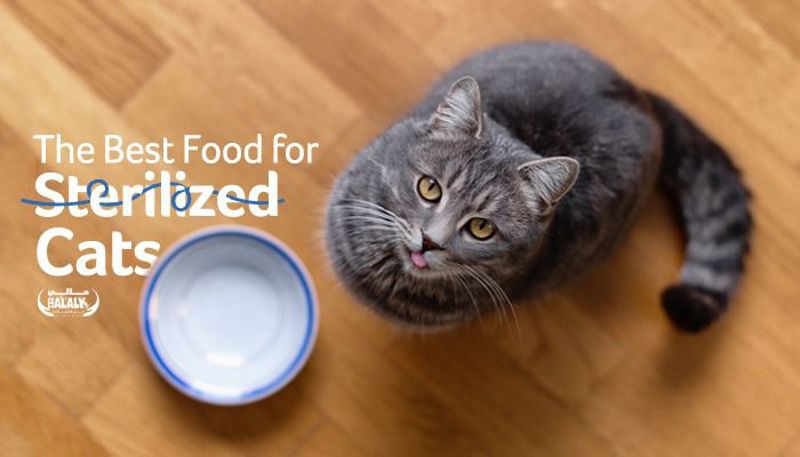If you have a sterilized cat, you must choose its food carefully. Sterilized cats have different nutritional needs, as they are more prone to obesity, urinary tract problems, and kidney disease.
Sterilized Cats Have Different Nutritional Requirements
Sterilized cats require a special diet to ensure their health and well-being. While there are many factors to consider when caring for your feline friends, their nutrition is paramount. In this comprehensive guide, we'll explore the essential aspects of selecting the best food for sterilized cats. We'll cover everything from the importance of sterilization to the specific dietary needs and the top brands to consider. By the end of this article, you'll be well-equipped to make informed decisions about your sterilized cat's diet.
The Importance of Sterilization
Before delving into the intricacies of feline nutrition, let's understand why sterilization can sometimes be crucial for cats. Sterilization not only prevents unwanted pregnancies but also offers various health and behavioral benefits. Neutered or spayed cats are less likely to roam, reducing their exposure to outdoor dangers and lowering their risk of contracting diseases. Moreover, sterilization can mitigate aggressive behavior and certain medical conditions, such as uterine infections and testicular cancer. To ensure the overall well-being of your cat, it's essential to make post-sterilization dietary adjustments.
Understanding the Dietary Needs
Sterilized cats have unique nutritional requirements that differ from their intact counterparts. To maintain their health and vitality, it's essential to consider the following aspects when selecting their food:
1. Protein Content
Protein is a critical component of a cat's diet. After sterilization, cats may have a decreased metabolic rate, making them prone to weight gain. A high-protein diet can help maintain their lean muscle mass and keep them at a healthy weight.
2. Reduced Calories
Since sterilized cats have a lower energy expenditure, choosing a food that is lower in calories is vital to prevent weight gain. Look for options labeled as "weight management" or "low-calorie."
3. Controlled Fat Intake
A controlled amount of fat in their diet is essential to prevent obesity in cats. Opt for foods with moderate fat content, as excessive fat can lead to weight gain and related health issues.
4. Fiber Content
Fiber aids in digestion and helps your sterilized cat feel full, reducing their desire to overeat. Look for foods that include a healthy amount of fiber.
5. Essential Nutrients
Ensure that the food you select is rich in essential nutrients such as vitamins, minerals, and antioxidants to support your cat's overall health.
Top Brands for Sterilized Cats
When it comes to choosing the best food for sterilized cats, some brands stand out for their commitment to feline nutrition. Here are a few noteworthy options to consider:
1. Hill's Science Diet
Hill's Science Diet offers a range of cat food formulated for specific needs, including sterilized cats. Their products are renowned for their quality and balanced nutrition.
2. Royal Canin
Royal Canin provides various options designed to meet the unique dietary needs of sterilized cats. They focus on tailoring their formulas to address specific health concerns.
3. Josera
Josera offers a complete food for adult sterilized cats taking into consideration the high levels of protein and fibers with lower fat percentages to promote cats’ satiety, stimulate the metabolism, and help maintain a healthy weight.
4. Reflex
Reflex offers fully balanced super premium food for sterilized cats with super probiotics to help reduce unwanted fat and glycemia in cats, with various flavors.
Avoiding Common Pitfalls
While selecting the right food for your sterilized cat is essential, it's equally important to avoid common pitfalls. Here are a few tips to keep in mind:
1. Consult Your Veterinarian
Before making any dietary changes, consult your veterinarian. They can offer valuable guidance based on your cat's needs and health condition.
2. Monitor Your Cat's Weight
Regularly monitor your cat's weight and adjust their food intake to prevent overeating and obesity.
3. Gradual Transition
If you're switching your cat to a new diet, do it gradually to avoid digestive upset. Mix the new food with the old one, increasing the ratio of the new food over time.
4. Fresh Water
Ensure your cat has access to fresh, clean water at all times. Proper hydration is essential for its well-being.
Conclusion
Choosing the best food for sterilized cats is a responsibility that should not be taken lightly. Your cat's health and happiness depend on the quality of their nutrition. Understanding their unique dietary needs and selecting the right brand ensures that your sterilized cat enjoys a long and healthy life. Remember to consult your veterinarian for personalized recommendations, monitor your cat's weight, and make dietary changes gradually. With the right approach to their nutrition, your sterilized cat can thrive and bring joy to your home for years.























































